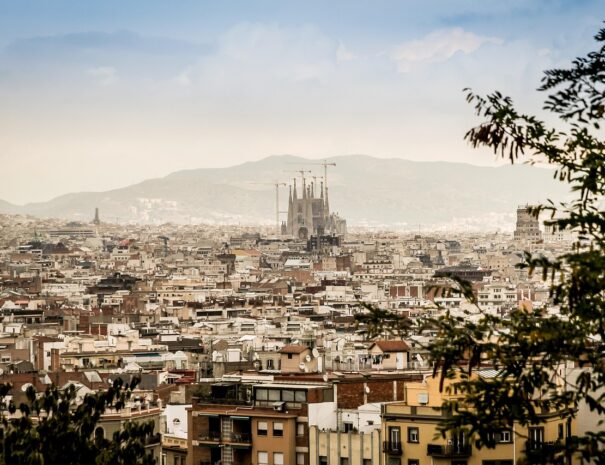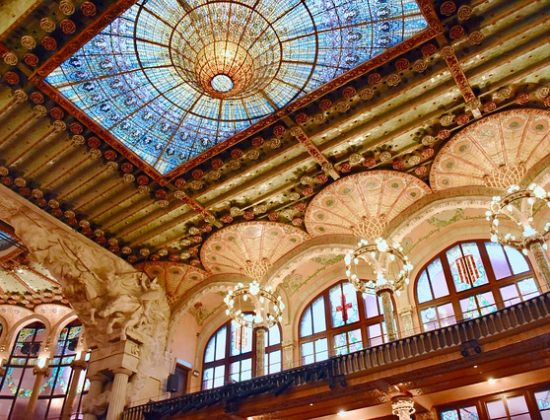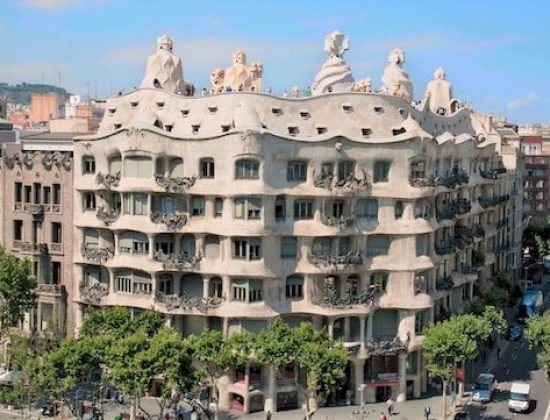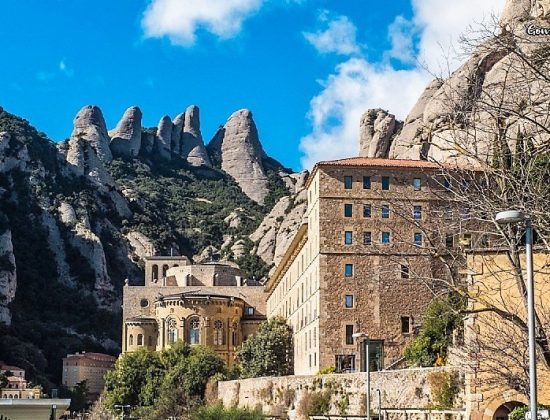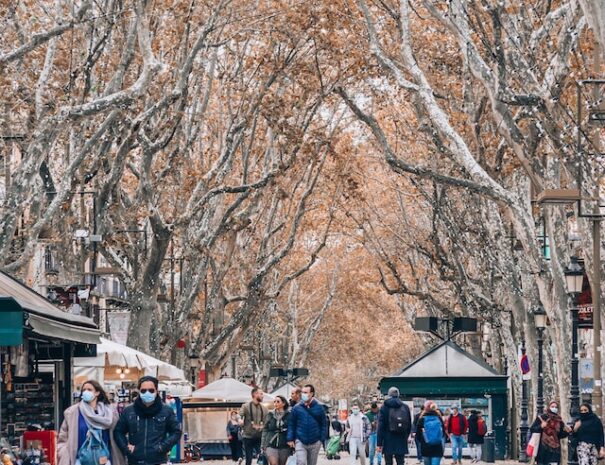
Barcelona
The best travel guide to Barcelona with recommendations on where to stay and eat, top sights and insider tips
Barcelona is Spain´s second largest city and the capital of Catalonia. The city has something from everyone. Its Mediterranean character contrasts its gothic roots, which also contrast with its wide avenues and beautiful modern buildings. Discover in this Barcelona city guide the best way to spend your days in “La Ciudad Condal”
Barcelona is a place where architecture and art melt together. The influence of Gaudi has been profound and exceeds his masterpieces.
Food markets, nightlife, art galleries, FC Barcelona and the Barcelona football stadium, the beachfront… No matter what you are looking for you will probably find it here!
Barcelona travel guide - Contents
Our 3 top accomodations in Barcelona
Hotel the Serras 5*
5 Top Reasons To Visit Barcelona
Gaudi
Few architects have shaped a city to the extend Gaudi did with Barcelona. It is not so much the number of buildings, but their importance and his later influence. La Sagrada Familia, La Pedrera, Casa Batlo and Güell Park are all 4 top attractions in Barcelona.
Las Ramblas
This street (or better said streets) show the most lively face of Barcelona. Las Ramblas start in Plaça Catalunya and will lead you to the gothic district. The Ramblas are full of shops, terraces (better places for a drink than for a meal) or flower stands. The famous Boquería market, Miro´s Mossaic or the Canaletas fountain are among Las Ramblas top highlights. Find more information and a complete Las Ramblas guide in this section.
The Gothic quarter and the Cathedral
The old district in Barcelona with narrow and twistling streets boasts some fantastic plazas (Sant Jaume or del Rei), the city hall and the Barcelona cathedral, which is one of the cities top sights.
The Barceloneta beach and the olimpic district by the sea
One of the best things of being in Barcelona (and which makes it a top place to visit in Spain) is that you can combine culture, art, nightlive gastronomy and the sea. La Barceloneta is not a huge beach (around 600 meters long) but it is very easy to access and has (when not too crowded) great atmoshphere. The seafront continues to the Port Olimpic, an area of Barcelona totally rebuilt for the ocassion of the 1992 olimpic Games.You will enjoy Frank Gehry´s copper peix (fish) Sculpture which will make you think of the Guggenheim museum in Bilbao. There are lots of bars, terraces and restaurants in the olimpic port area.
We would recommend you to stay a bit longer and enjoy a tour to Montserrat. This is the day excursion from Barcelona most people take. Montserrat is almost a day tour to Montserrat.
Weather In Barcelona
Barcelona’s weather is generally mild and pleasant throughout the year, with warm summers and mild winters. The city enjoys plenty of sunshine, with an average of around 2,500 hours of sunshine per year.
Warmer months of the year are June, July and August, June, July, and August, with temperatures ranging from 25°C to 30°C (77°F to 86°F) on average.
Winters in Barcelona are relatively mild compared to other European cities (8°C to 15°C (46°F to 59°F) on average on the coldest months.
Best Time To Visit Barcelona
Our favorite months to visit Barcelona are March, April, May, first half of June, September and October.
Bear in mind that most restaurants will be close on Sunday nights. Also bear in mind that many attractions close on Mondays.
Most popular attractions in Barcelona
Insider's hints to enjoy 1 day in Barcelona like a "local tourist"
Sagrada Familia
We strongly recommend to start your visit at opening hours to avoid crowds. A skip the line ticket is also advisable. If this not possible, the you should opt for the latest possible time but always with light to enjoy the stained glass windows!. As a matter of fact, if there is a sunnier day during your stay we would recommend that one to enjoy the interior of Sagrada Familia.
5 minutes walk from Sagrada Familia you will find Bodega Iturre, where you can enjoy a traditional bar that has not changed much through the years.
Park Güell
A 30 minute walk is needed from Sagrada Familia to arrive at Parl Güell. We would recommend using a taxi if a 30 minute walk seems long (public transportation does not offer a good combination)
What to do after visiting Park Güell? We would recommend you walk down Gracia neighbourhood once you finish your visit to Park Güell. Calle verdi is your best option to enjoy local atmosphere and a bit of shopping. You can stop at Plaça Virreina and enjoy views of the church and then continue to walk to Avenida Diagonal where you will be able to take the metro.
Some cool ideas and shops close to some of the most important tourist attractions follow:
Near Casa Batló
One of the best book shops in Barcelona is located at less than 10 minutes walk: Livreria La Central at Carrer de Mallorca 237 .
If you are not into books but into fashion M69 is a great shop for you and very close to Casa Batló.
La Rambla
Some of Barcelona´s oldest shops can be found in La Rambla and the Gothic.
Casa Beethoven
(La Rambla 97)is Barcelona´s oldest music shop.
Casa Cotchet J.Xanco
La Rambla 129 is one of Barcelona´s protected shops. Fantastic modernist decoration inside. They sell high quality men´s fashion.
Gothic Quarter
Casa Gispert (Carrer dels Sombrerers, 23) is one of Barcelona´s oldest food shops. Opened in 1851, a great selection of products can be found. The atmosphere is very special.
Abracadabra book shop (Carrer del General Álvarez de Castro, 5,) is a fantastic bookshop for children. Books in english are available.
Best day excursions from Barcelona
Brief History of Barcelona
In the 8C it was taken by the Arabs and in 801 recaptured by the French King Louis. From this time the Garraf massif became the dividing line between the French and the Mohammedans, and what is now Catalonia became part of the Spanish border. The province became an organized unit, and the Counts of Barcelona held Sway over much of the surrounding area.
After Wilfred ‘el Velloso’ (the Hairy, 878 -97) the title became hereditary, and under Borrell II (947-92) Barcelona became the capital of an independent state (988).
Ramon Berenguer I and his brother linked the old border territories under their command, and the kingdom of Catalonia was born. The first nobleman to hold the title of king was Alfonso I (1162-96), who reigned over Catalonia and Aragon (united by marriage), but also Provence, Béarn, Bigorre, Carcassonne, Béziers, Nîmes and Nizza.
The Catholic King Pedro I (1196-1213) lost most of the French provinces as well as his life by taking part in the Crusades; the Catalans only managed to hold on to Roussillon and Montpelier. His successor, James I, known as the Conqueror, started by moving into the Mediterranean. He took the two largest Balearic Islands (Mallorca in 1235, Ibiza in 1238), and also the province of Valencia. Succeeding kings annexed Corsica, Sardinia, Sicily and Greece. Barcelona remained the capital until the reign of the Catholic King Ferdinand II, after which the royal seat moved first to Burgos and then to Madrid.
Barcelona kept a viceroy and remained capital of its province, representing Barcelona in general, until Philip V, on the side of Charles of Austria stripped it of its rights during the War of the Spanish Succession (1701-13). In 1860 the city we see today began to develop and gain its current splendor.
More great Cities in Spain
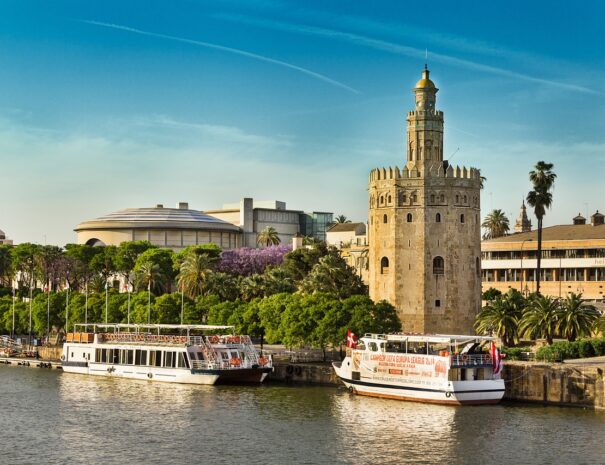
Seville City Guide
“Sevilla tiene un color especial” claims a famous Spanish song… The soul of this city may emerge from the passion of Flamenco in the taverns of Triana neighborhood, or from the greedy conquistadores that populated it, or you may have to blame Easter for it. No matter where the truth is that few cities in the world can pride themselves on being a perfect mix of beauty and charisma. Today you will learn about the history of Seville at the Alcazar, enjoy one of its most relaxing areas in Maria Luisa and, discover the passion of Flamenco in one of the flamenco shows in Seville. … Read More
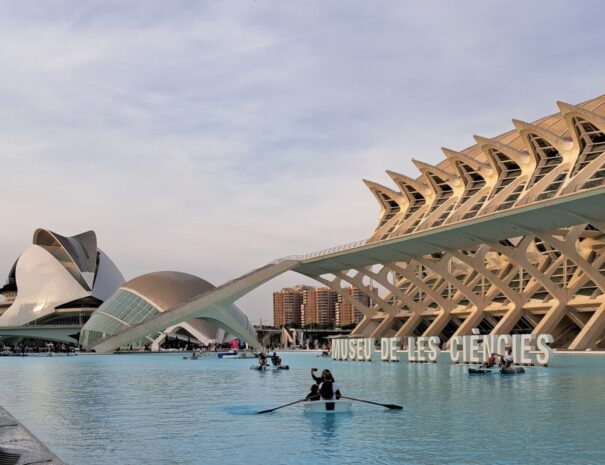
Valencia City Guide
Most first-time visitors to Valencia do not have a very clear idea about what to expect from Valencia. The architectural beauty of the City of Arts and Sciences is probably the image most seem in any travel guide to Valencia. But there is so much more! Discover everything Valencia has to offer in tis visitors’s guide … Read More
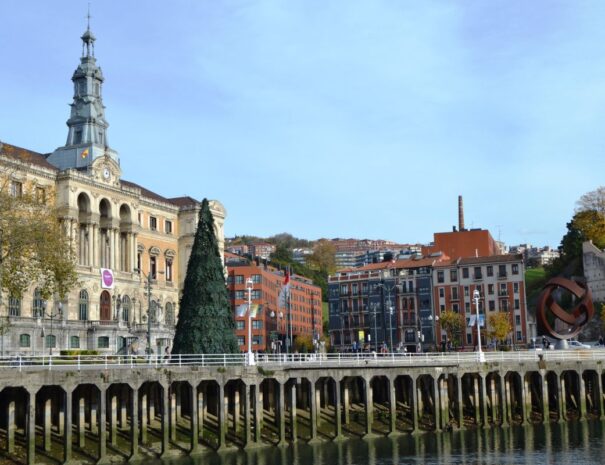
Bilbao City Guide
Our team of local experts thought that it makes all sense in this Bilbao city guide to ensure you find the most interesting things to enjoy in Bilbao. A gastronomical heaven and paradise for foodies who love both bar hopping and fine dining, Bilbao is also a great place to enjoy art. Not far from Bilbao you will also be able to discover fantastic beaches full of surfers, and excellent trecking opportunities. … Read More
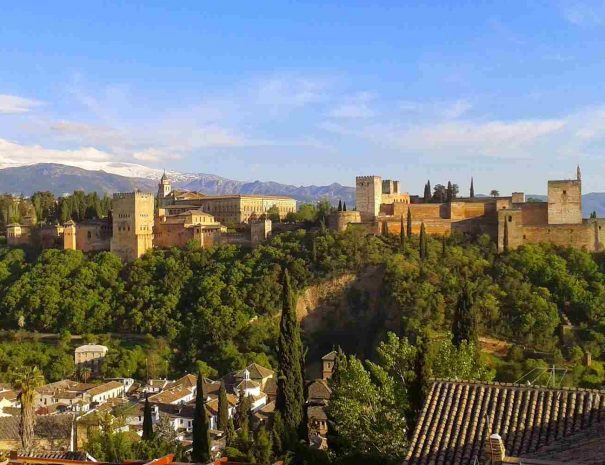
Granada City Guide
Granada is more than the iconic Alhambra. The sounds and scents at the Albaycin take you to a different world. Our local guides have curated a city guide of Granada with many recommendations to ensure you make the most out of your time here! … Read More
is proudly powered by WordPress

